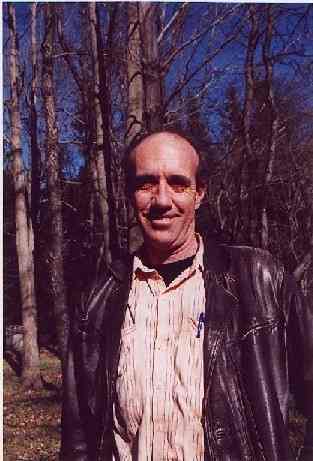Part 2
"Man's pride and satisfaction in what he knows limits the scope of his vision."
Hazrat Inayat Khan
My best friend is often saying that all of life is a long dream. From beginning to end the dream flows and the quality of our dream is determined by how we decide to see ourselves, others and the whole of creation. As I have been thinking about this theme of belief dreaming becomes more and more important. It was pointed out to me, by someone reading the last blog that people go through various stages and often a sincere belief in something will be their next best experience within this dream. There is a hidden factor here though.
In the last blog I mentioned that I was reading "Reading Lolita in Tehran", by Azar Nafisi. One of the points that she makes several times is that the women of Iran are living someone else's dream. When Khomeini arrived in 79 he had his own dream of how he believed things had been at one time and how they should be in this new Islamic state. Then he imposed his dream on everyone else. In this way a sincere belief became a theocrats means of demanding that the world conform to his particular dream. To be perfectly honest, I am not sure if, in the long term scheme of things, this is good or bad. In the short term it is good for those who need to know they are more right then anyone else and bad for those who want to simply live their lives with basic freedoms. In the long term I can see people discovering two very separate dreams. One would be the dream imposed upon them, especially the women, and the other would be the dream they have of themselves that knows the first dream is an illusion that they must give obeisance to but which has no fundamental meaning in and of itself.
Oh, the hidden factor? It is simply this, whose dream are you dreaming? Your own; or that of someone else.
Isn't that an interesting question? I imagine that many, even most people would say that they are not dreaming, they would say that this is reality. Well, we can debate that some other time but the essence of the question remains. Are you giving belief away? Or, is it truly yours.
What seems to be true is that we, as humans, go through various stages.
I have this person who looks to me, more or less as a guide. She is very pesty. She consistently contradicts me and makes me explain far beyond any reasonable persons need for explanation. Yet I love her. I love her because she will not just accept, it has to feel totally right to her. When we first met she was very sure of her rightness and knew just where she stood. That is no longer the case; now it has become a wonderful stage of questioning belief and discovering dormant possibilities. And it is exciting to watch. For me it is a very difficult challenge because in order to answer her questions I must also question what I know to be true. In this manner Truth becomes this vast arena of ever changing realities. What I continually wonder in this constant reinterpretation of belief is where will it end?
As Inayat Khan says above, our pride keeps us from expanding the scope of vision. So maybe the kinds of people who continually question and demand are the ones who aid us in expanding our scope. I am reminded however of how often I have seen someone, some spiritual teacher, demanding that some student or congregant just accept what they are told with no discussion or argument. Granted, occasionally a student will be obstreperous and question just to show they are clever but that is not always the case. Even then I wonder if there is not purpose in the questioning, annoying as it may be.
From my point of view then, belief is always a variable, never fixed. As anyone who reads my blogs knows, my main point is always that there is nothing fixed, everything is variable, and there are no rules. We can say, from a certain point of view that God or whoever the prime motivator happens to be, watches us as an interested observer. It could be said that this being, assuming there is such a thing, is paying attention to the actions of an aspect of itself that has been given the right to do as it likes, just so God can see what happens. If this is true, then anything that we may believe that depends on some outside source of inspiration or relies on someone else to inform us, must be suspect. Obviously their information is no better than ours. So we each have a responsibility to say what we know to be true for ourselves, not for someone else.
I await your comments.
Love & Blessings, Musawwir
